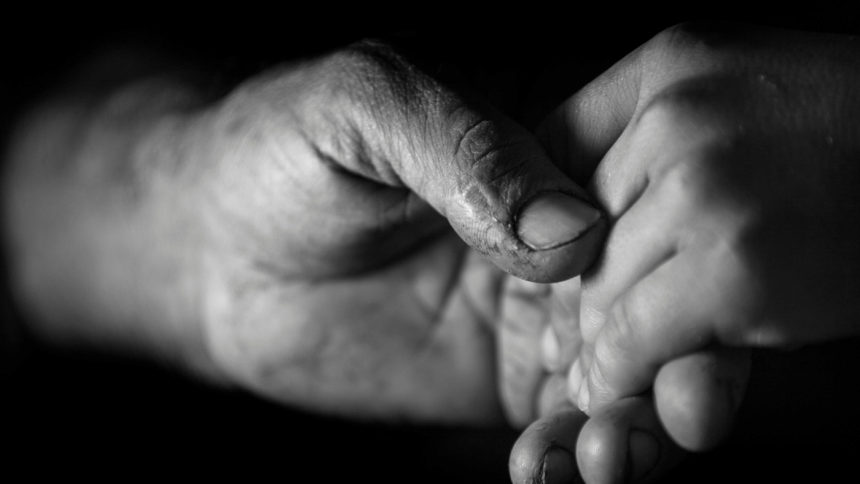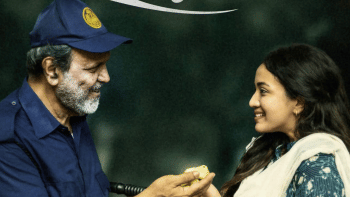The Gentle Giants: How our fathers loved us without saying a word

They didn't say "I love you."
Not out loud. Not with so many words. But they showed it, in the way they'd silently slide the best piece of hilsa fry onto your plate, without a word. In the way they'd let Iron Maiden blast through the car speakers, even if it gave them an earache. And in how they'd sit silently outside coaching classes, watching you say yet another drawn‑out goodbye to your friends.
Bangladeshi fathers, particularly those who came of age in the '70s, '80s, and '90s, weren't built for emotional declarations. Their love was expressed quietly through patience, presence, and silent acts of care.
My father, the builder of memories
My dad may live thousands of kilometers away now, but his influence is just as tangible as the crooked shelf we built together. We varnished wooden furniture, badly at first , and even resurrected a stubborn Russian fridge with fresh paint. We huddled like engineers over a rickshaw-dented car door back in the late '90s. He stuck tools around the house and filled bookshelves with all kinds of knowledge building hard-cover compilations before the age of Wikipedia. And now, every time I work on my car or rebuild an RC truck for my son, I hear him in my head: "Keep trying, you'll get it done."
Dad jokes with a twist of trust
Other dads had their own dialects of quiet love. My friend Khalil's father, for instance, was fluent in the corniest of dad jokes which are the best jokes. "Khalil's getting a passport photo today," he once whispered to me, eyes twinkling. "Told him to wear perfume."
And the time we secretly took his car out, Khalil froze at the sight of his dad chatting near the gate on our way back. Khalil freaked out and forgot all his recently practiced driving lessons. Clutch in for first gear? What's that? He panicked. He quickly got out of the car and asked me to park. His dad wordlessly took the keys, told us to leave the car outside, "I'm taking it for a drive if you two don't need it anymore."
Then later, out of earshot of his son, he turned to me and chuckled: "Did he get scared? Tell me, can he drive?"
Not anger. Not punishment. Just a little moment of mischief, laced with trust, for both of us kids.
A pilot's guidance
Then there was Aalok's father, a pilot by profession, philosopher by instinct. We'd all hang out at Aalok's place, and every so often, his dad would summon us for what we called "The Lecture." We were impatient teenagers. But we'd still walk into the room when called. "Don't argue about women, religion, or politics," he'd tell us. "They're not worth losing friends over."
Gem of an observation.
I'd always push back, naturally. Question something, disagree with something else. And the others would groan: "He's making it longer!" But I miss those lectures now. The soft-spoken clarity. The dignity. The belief that we were worth advising remains a memory we now treasure.
Presence that anchors
But then, it isn't always about grand gestures or gifts. Sometimes, love speaks in the quietest presence, in the everyday knowing. Like Tapos's father, who didn't lecture or fix or perform, but simply arrived. He knew every friend, every quirk, every celebration and failure. Not because he organized them, just because he was there, every time. And that presence? Sometimes, that's the greatest love a father can show.
Passing it forward
Even now, not much has changed.
A few years ago, I was in a bit of a jam. Money was tight, but I kept quiet. I didn't tell anyone. Then, one day, my father showed up. No big conversation. Just a calm visit. He pressed a small check into my hand and said softly, "You might need this."
I tried to say no. I mean, I'm a grown man. But you can't really argue with a father who has already decided to care for you.
Some moments feel like home, even when they aren't your own. One of my friends takes his son to die-cast car collector meets. The boy talks to grown-ups about rare models and tiny paint details like he belongs there. There is no big effort, no show. Just a father and son, sharing something small that somehow becomes everything.
We grew up surrounded by these quiet gestures. Packing a spare charger just in case. Checking the tyres before a long trip. Not letting guests leave without tea. These habits, done without thinking, are the love we inherited. They are rituals passed down, woven into the background of our lives.
And then we grew up. We had children of our own. We say "I love you" now. We say it clearly, often. Across rooms, through texts, during video calls. But still, the real love often lives in the old ways. I buy games on Steam for my son cause I know he has worked hard on his studies. I make my daughter's sandwiches just how she likes them and leave them for when she wakes up. I turn on the air conditioner at night so they sleep comfortably. They may not notice. But that's alright.
That's how I learned to love. Because that's the language our fathers spoke. And we still carry it with us.

 For all latest news, follow The Daily Star's Google News channel.
For all latest news, follow The Daily Star's Google News channel. 




Comments